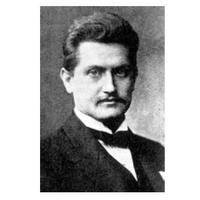Ĉapitro 3.4 – Kelkaj demandoj
Chapitre|Quelques|questions
Kapitel 3.4 – Einige Fragen
Chapter 3.4 – Some questions
Capítulo 3.4 – Algunas preguntas
Chapitre 3.4 – Quelques questions
Kabe: Mia alia demando temas pri mia nomo… Vi diris antaŭe, ke ĝi havas rilaton al Esperanto.
|||||||||сказал|ранее||||отношение||
Kabe|mon|autre|question|concerne|sur|mon|nom|Vous|avez dit|auparavant|que|il|a|relation|à|Esperanto
||||trata||||||anteriormente||||||
Kabe: My other question is about my name… You said before that it has to do with Esperanto.
Kabe : Ma autre question concerne mon nom... Vous avez dit précédemment qu'il a un lien avec l'espéranto.
Ina: Ha, jes, pri Kabe.
|Ha|oui|à propos de|Kabe
Femme : Ah, oui, à propos de Kabe.
Iam vivis viro kun la nomo Kabe.
однажды|жил|||||
Il y a|vivait|homme|avec|le|nom|Kabe
Once upon a time there lived a man named Kabe.
Il y avait autrefois un homme nommé Kabe.
Li estis tre aktiva en la Esperanto-movado kiam ĝi estis tute nova kaj tradukis multajn librojn en Esperanton.
|||||||движение|||||||перевел||||
Il|était|très|actif|dans|le||mouvement|quand|il|était|complètement|nouveau|et|a traduit|de nombreux|livres|en|espéranto
|||||||movimiento esperantista|cuando||||||||||
He was very active in the Esperanto movement when it was completely new and translated many books into Esperanto.
Il était très actif dans le mouvement espéranto quand il était tout nouveau et a traduit de nombreux livres en espéranto.
Kabe: Kaj tio faris lin fama?
|||сделало||
Kabe|Et|cela|a fait|lui|célèbre
|||lo hizo||famoso
Kabe: And that made him famous?
Kabe : Et cela l'a rendu célèbre ?
Ina: Ne.
|Non
Female: No.
Ina : Non.
Certe li estis unu el la plej gravaj por Esperanto tiam, kaj li multe influis la stilon de la lingvo.
||||||||||||||влиял||стиль|||
Sûrement|il|était|un|de|les|plus|importants|pour|Espéranto|alors|et|il|beaucoup|a influencé|le|style|de|la|langue
||||de los|||importantes|||||||influyó en||estilo de la|||
He was certainly one of the most important for Esperanto at the time, and he greatly influenced the style of the language.
Bien sûr, il était l'un des plus importants pour l'espéranto à l'époque, et il a beaucoup influencé le style de la langue.
Tamen li subite forlasis la movadon kaj Esperanton.
|||||движение||
Cependant|il|soudain|abandonna|la|mouvement|et|l'espéranto
||de repente|abandonó||||
However, he suddenly left the movement and Esperanto.
Cependant, il a soudainement quitté le mouvement et l'espéranto.
Mi imagas, ke estis granda ŝoko por multaj…
|представляю||||||
Je|imagine|que|était|grand|choc|pour|beaucoup
|Me imagino||||sorpresa||
I imagine it was a big shock for many…
J'imagine que cela a été un grand choc pour beaucoup…
Kabe: Kial li forlasis Esperanton?
Kabe|Pourquoi|il|a abandonné|l'espéranto
|¿Por qué?|||
Kabe: Why did he leave Esperanto?
Kabe : Pourquoi a-t-il quitté l'espéranto ?
Ina: Mi kredas, ke li estis malkontenta pri la esperantistoj… Li diris ion similan al “Esperanton devas lerni la esperantistoj mem!”.
||||||недоволен||||||||||||||
|Je|crois|que|il|était|mécontent|à propos des|les|espérantistes||||semblable|||||||eux-mêmes
||||||||||||algo similar a|||||||esperantistas|los mismos esperantistas
Female: I think he was unhappy with the Esperantists… He said something like “Esperantists must learn Esperanto themselves!”.
Ina : Je crois qu'il était mécontent des espérantistes… Il a dit quelque chose comme « Les espérantistes doivent apprendre l'espéranto eux-mêmes ! ».
Kabe: Kion li volis diri per tio?
Kabe|Qu'est-ce que|il|voulait|dire|par|cela
Kabe: What did he mean by that?
Kabe : Que voulait-il dire par là ?
SENT_CWT:AFkKFwvL=2.82 PAR_TRANS:gpt-4o-mini=15.84
fr:AFkKFwvL
openai.2025-02-07
ai_request(all=17 err=0.00%) translation(all=13 err=0.00%) cwt(all=128 err=11.72%)

